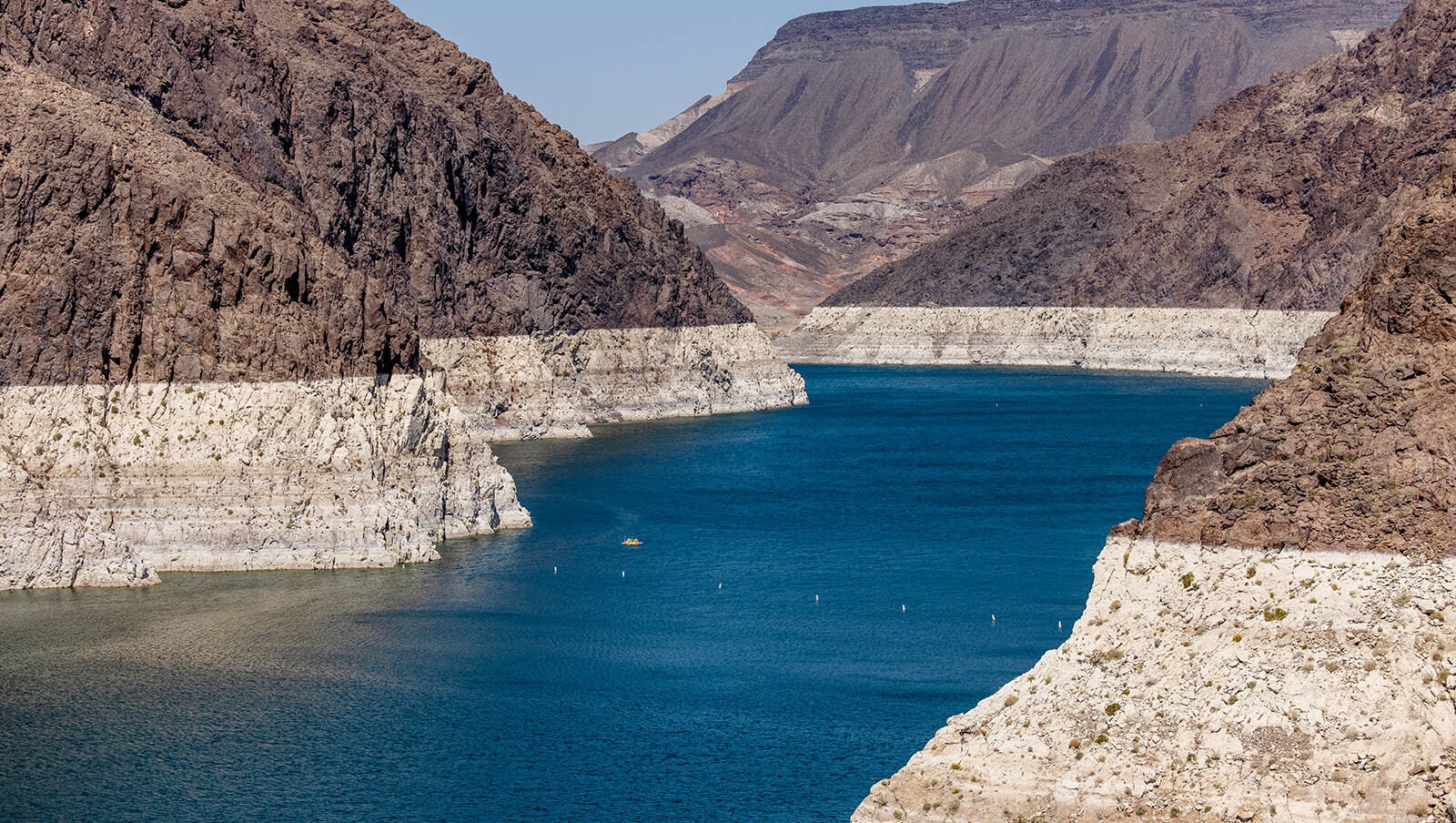With tensions building over who gets how much of the dwindling Colorado River water supply, Wyoming needs to start making some tough decisions, state officials told lawmakers Thursday.
That could include passing a bill that, among other things, might incentivize farmers and ranchers to voluntarily cut back on irrigation along the Green River.
Setting An Example
The Wyoming Legislature’s Select Water Committee considered the bill, but didn’t take a final vote on it. Instead, the committee voted to hold it over until its next meeting, set for January 2026.
That’s when the committee might decide whether to forward it to the full Legislature for the 2026 session.
Wyoming State Engineer Brandon Gebhart and Chris Brown, water section supervisor for the Wyoming Attorney General’s Office, told the committee that the bill could be the first step toward a longer-term water management program for Wyoming.
That in turn could lead to a broader program for the Upper Colorado River Basin states: Wyoming, Colorado, Utah and New Mexico.
Under the bill, farmers might be incentivized to skip crop irrigation some years.
That, or any other actions suggested in the bill, would be voluntary, not mandated.
Committee member Sen. Gary Crum, R-Laramie, asked how that might be effective.
“This is a voluntary program. If it’s voluntary, why a bill?” he said.
Brown said Wyoming’s efforts could set a precedent.
“It signals to the other states that when we commit to engaging in voluntary conservation we're serious about it. We’re hearing a lot of rhetoric from our downstream states that we haven’t put anything on the table that is serious,” he said.
The bill could also prompt conservation projects, such as lining irrigation canals to keep water from leaching into the ground, Gebhart said.

2026 Deadline Looms
Operating agreements for the Colorado River basin are up for renewal after 2026.
Having a water management and conservation program in place could help Wyoming reach an agreement with other states with Colorado River water rights, Gebhart said.
But if negotiations fail, the matter could get dragged into the courts, perhaps leaving Wyoming facing mandatory water cutbacks, he said.
“Without that agreement, it will be left either to Congress or, most likely, the courts to decide. And we certainly want to be able to control our own destiny and make the decisions among the seven states and avoid those two outcomes,” Gebhart said.
Representatives of the Upper Colorado River Basin states — Wyoming, Colorado, Utah and New Mexico — are alarmed over what post-2026 river management might look like.
There’s concern that the Lower Basin states — Arizona, Nevada and California — aren’t holding up their end of the 1922 Colorado River Compact, which still sets the overarching policy for water use along the river.
And the Upper Basin states claim that the Lower Basin has been hogging the water.
Although the Colorado River doesn’t flow in Wyoming, the Green River is a major tributary of the Colorado River, so Wyoming is considered a headwaters state.
Fontenelle Reservoir, which is mostly in Lincoln County, is Wyoming’s main storage pool. The bill would authorize the State Engineer’s Office to assess other reservoirs for possible storage.

Monetizing Water?
Sen. Larry Hicks, R-Baggs, doesn’t sit on the committee, but much of the Green River Basin is in his district.
He told the committee that parts of the bill bother him because it would prompt farmers to put their irrigation rights up for sale.
“Somebody’s going to pay somebody to quit irrigating. That’s what we’re going to do,” he said.
The bill wouldn’t be necessary for water conservation measures, such as making irrigation systems more efficient, he said.
Committee member Rep. Dalton Banks, R-Cowley agreed with that sentiment, saying he was troubled by the concept of “incentivizing people to not irrigate their land.”
He said he will oppose the bill.
“I understand that we have to do something, but sending a ship forward with holes in it is still going to sink,” he said.
George Raftopoulos, a rancher on the lower Little Snake River, told the committee that he supports the bill.
He said his family has already had some years when they bought hay, rather than irrigating to grow their own, and were able to make up the difference by selling more cattle.
Mark Heinz can be reached at mark@cowboystatedaily.com.





